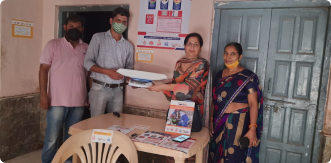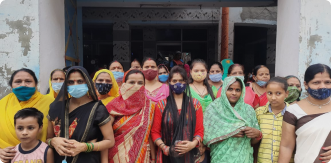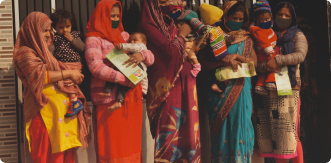

JSIPL is committed to supporting the government in developing comprehensive health policies and evidence-based, cost-effective interventions to guide effective capacity building. It partners with the government to implement projects in Reproductive, Maternal, Newborn Child Plus Adolescent health (RMNCH+A) while demonstrating success and innovation.

Providing technical assistance to strengthen government health systems and build the RMNCH+A strategy on the continuum of care concept.
Designing each project, so it focuses on improving access and implementing state-of-the-art behavior change programs.
Improving private sector engagement by focusing on a total market approach that is locally relevant.
Reaching underserved populations through innovative solutions related to planning and implementing high-quality RMNCH+A services.
Developed innovative models across the continuum of care for pregnant, lactating, post- partum, and young children <5 years.
Assisted in the development and roll-out of RMNCH+A strategic roadmap and listing high- priority interventions under each thematic area.
Boosted home-based newborn care (HBNC) and utilization of ORS- Zn for diarrhea among children in select high-priority districts and helped develop the India Newborn Action Plan.
Developed maternal health guidelines and strategies for preventing postpartum hemorrhage.
Contributed to strengthening supply chain management of essential commodities required for implementing RMNCH+A interventions.
Supported roll-out of new child health-related GoI guidelines like Kangaroo Mother Care (KMC) and use of Injection Gentamicin and oral Amoxicillin by community health workers.



Through the USAID supported SAMVEG project, we have focused on system strengthening through engagement of private sector and addressed key MCH challenges in vulnerable populations.

The USAID-funded VRIDDHI project provided technical support to the MoHFW to scale up India’s RMNCH+A strategy. VRIDDHI worked with the state governments of Delhi, Haryana, Himachal Pradesh, Jharkhand, Punjab, and Uttarakhand, as well as 30 high-priority districts (HPDs), to scale up the RMNCH+A intervention.

The project strengthened the supply chain management of 40 essential commodities required for the implementation of high-impact RMNCH+A interventions in six states.